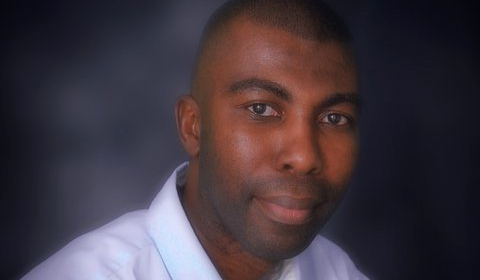As the world observed International Literacy Day on Saturday 8th September, I paused to reflect on the books that I read that helped to shape my aviation career. I’ve read hundreds of books but here are the ones that have had the biggest impact.
As the world observed International Literacy Day on Saturday 8th September, I paused to reflect on the books that I read that helped to shape my aviation career.
During my teenage years I seldom read opting for outdoor activities like most youths of my era. When I did read, it was christian literature that I had a subscription for or general knowledge books that helped me to compete in knowledge-based games we played when outdoor activities were not possible.
After joining the air traffic services profession, my reading centered around the various volumes of ICAO publications that were necessary for my job. On completion of my ab initio training in 1988, I read an almost endless supply of accidents and incident reports that were published by ICAO. This was made possible because the night shifts we worked at the time were 14 hours long, the workload was relatively light and these reports were the only available reading material in the facility. Since sleeping was not an option, these reports became my non-fiction books of choice.
I will be the first to admit that I am an aviation geek. During the first 15 years of my aviation career in Guyana, I read everything I came across in the control tower. Seldom did I read anything that was outside the realm of my vocation.
One day in the late 1990s I visited my boss’ office and saw a freshly minted document siting on his desk: Doc.9574 - Manual on Implementation of a 300 m (1 000 ft) Vertical Separation Minimum Between
FL 290 and FL 410 Inclusive. I immediately asked to borrow it, reading it from cover to cover during the ensuing days.
Not to long after returning the document, I was asked to represent Guyana at an RVSM workshop hosted by ICAO Regional Office in Lima that was to be convened just weeks away. That was probably that fastest I have earned the fruits of my labour, or maybe that was just a coincidence. Notwithstanding, I love telling this story because it reinforces one of my mantras: I don’t believe in luck, we achieve or succeed at the intersection of preparation and opportunity.
With my move to the Turks and Caicos Islands in 2003, came new opportunities. I suddenly found myself with more free time on my hands, so I had to quickly channel my energies somewhere. Reading was my choice. The more I read, the more I thirsted for more, but this time I departed from the aviation-centric publications.
So with hundreds of books read in the ensuing years, here are some of the books [in no particular order] which have had the greatest impact on my aviation career:
- The 7 Habits of Highly Successful People, Stephen R. Covey - “Paradigms are powerful because they create the lens through which we see the world… If you want small changes in your life, work on your attitude. But if you want big and primary changes, work on your paradigm.” This is a compelling quote by the author which encapsulates his discussion on the ultimate cheat-sheet for success.
- The One Thing, Gary W. Keller and Jay Papasan - The book discusses the value of simplifying one’s workload by focusing on the one most important task in any given project.
- The Outliers, Malcolm Gladwell - The author examines the factors that contribute to high levels of success. To support his thesis, he examined Canadian ice hockey players, Bill Gates and the Beatles among others. A common theme that he discovered is that they all had 10,000 hours of practice in their various skills making them experts by the time opportunities presented themselves.
- Winning, Jack Welch - Welch discusses his forty-year career at General Electric which he led with year-after-year success around the globe, in multiple markets, against brutal competition. He was relentless in his focus on people, teamwork, and profits. The top 10% performers got showered with all the perks a man [or woman] can possibly as for while inspiring and giving opportunities to others to raise the level of their performance.
- How to Win Friends and Influence People, Dale Carnegie - One of my biggest take-away from this book is recognizing that human nature generally does not allow us to admit fault. When we criticize or humiliate people, they rarely respond well and will often become defensive and resent their critic. This is a great self-help book that forges good relationships in the workplace and beyond.
- The Wright Brothers, David McCullough - This book chronicles the Wright Brothers’ efforts to achieve sustained flight. What appeals to me is their determination against all odds and the preponderance of information that they had to peruse to connect all the dots.
- Lead with a Story, Paul Smith - People love a good story. Stories have the ability to engage an audience the way logic and bullet points alone never could. Using the lessons learned in this book, I have personally found that when I am trying to communicate a vision or inspire others, beginning with a story has had phenomenal effects.
- The Black Swan, Nassim Nicholas Taleb - A central idea in Taleb’s book is not to attempt to predict Black Swan events which will inevitably happen, but to build robustness to negative events and an ability to exploit positive events. This is an important concept in the management of safety in aviation.
- Who Moved my Cheese, Spencer Johnson - This book is about change in one’s work and life, and four typical reactions to those changes by two mice and two “little people”, during their hunt for cheese. This story reinforces a thought that I have that animals are smarter that humans.
- Miracle in the Andes, Nando Parrado - Nando Parrado recounts his 72 days ordeal in the Andes following the crash of a plane in which he was traveling with his Uruguayan rugby team members. Those who survived the crash had to eat their dead teammates to survive, but this is a story of the will of one man to get back to civilization against all odds.
- Don’t Make me Think, Steve Krug - This book is about web usability, and is premised on the idea that a software program or web site should let users accomplish their intended tasks as easily and directly as possible, i.e. without thinking. Coming from a profession that requires brevity in all actions, I think that the principles discussed in the book aptly applies to most areas of life and business. Remember the KISS principle?
- Sometime you Win, Sometimes you Learn, John C. Maxwell - Maxwell argues that any setback, whether professional or personal, can be turned into a step forward when you possess the right tools to turn a loss into a gain. He provides a roadmap for winning by examining the eleven elements that constitute the DNA of learners who succeed in the face of problems, failure, and losses.
- The Power of Now, Eckhart Tolle - This book is a guide for day-to-day living and stresses the importance of living in the present moment and avoiding thoughts of the past or future.
- David and Goliath, Malcolm Gladwell - Gladwell draws on the account of the biblical story David and Goliath and discusses modern day obstacles, disadvantages, and other apparent forms of setbacks offering a new interpretation of what it means. He demonstrates how much of what is beautiful and important in the world arises from what looks like suffering and adversity.
- The Laws of Success, - Napoleon Hill - Together with the book Think and Grow Rich, The Laws of Success is the result of interviews of over 100 American millionaires across nearly 20 years, including such self-made industrial giants as Henry Ford, J. P. Morgan, John D. Rockefeller, Alexander Graham Bell, and Thomas Edison. Hill cites the laws and their collective understanding to be the door to the Temple of Success. It is his stance that thought is the most organized form of energy.
- Crucial Conversations, Al Switzler, Joseph Grenny, and Ron McMillan - This book focuses on techniques on how to hold crucial conversations in a positive space when surrounded by highly charged emotions.
- Antifragile, Nassim Nicholas Taleb - Just as human bones get stronger when subjected to stress and tension, many things in life benefit from stress, disorder, volatility, and turmoil. What Taleb has identified and calls antifragile are things that not only gain from chaos but need it in order to survive and flourish. Aviation is one of the industries cited as antifragile.
- The Silo Effect, - Tett applies her anthropologist’s lens to the problem of why so many organizations still suffer from a failure to communicate. She discusses how we have a tendency to work in silos, something that obviously hinder our work.
- Start with Why, Simon Sinek - Sinek compares the two main ways to influence human behavior: manipulation and inspiration. He then argues that inspiration is the more powerful and sustainable of the two. Sinek posits that people are inspired by a sense of purpose (or “Why”), and that this should come first when communicating, before “How” and “What”.
- Rich Dad, Poor Dad, Robert T. Kiyosaki - How can we afford something? This is perhaps one of the most important questions that the Rich Dad in the book asks. It stimulates one into thinking and finding financial solutions in one’s private life or in the operation of a business.
Every book that I have read inspired me in a unique way. They question the status quo and evoke thoughts of how to do something differently. That said, there are a handful of authors that stimulate me to the core including Malcolm Gladwell, Simon Sinek, Nassim Nicholas Taleb, Dan Ariely and John C. Maxwell.
Although none of Dan Ariely’s books made my list, I have to mention Predictably Irrational and The Honest Truth about Dishonesty. Ariely writes about Psychology and Behavioral Economics, and his arguments are based on experiments, not suppositions. I must admit that I have altered my own behavior following the completion of his books.
For good measure and to round out the top 25 books, I will throw in The Art of War, by Sun Tzu; Essentialism: The Disciplined Pursuit of Less, by Greg McKeown; and As a Man Thinketh, by James Allen.
Narrowing my list down to 20 was one of the hardest tasks that I ever handed myself, but there you go. You got 20 + 5 and I highly recommend all of these.
What are the books that made your top 20 list?









2 Responses
Quite a list. Interesting!
Wonderful